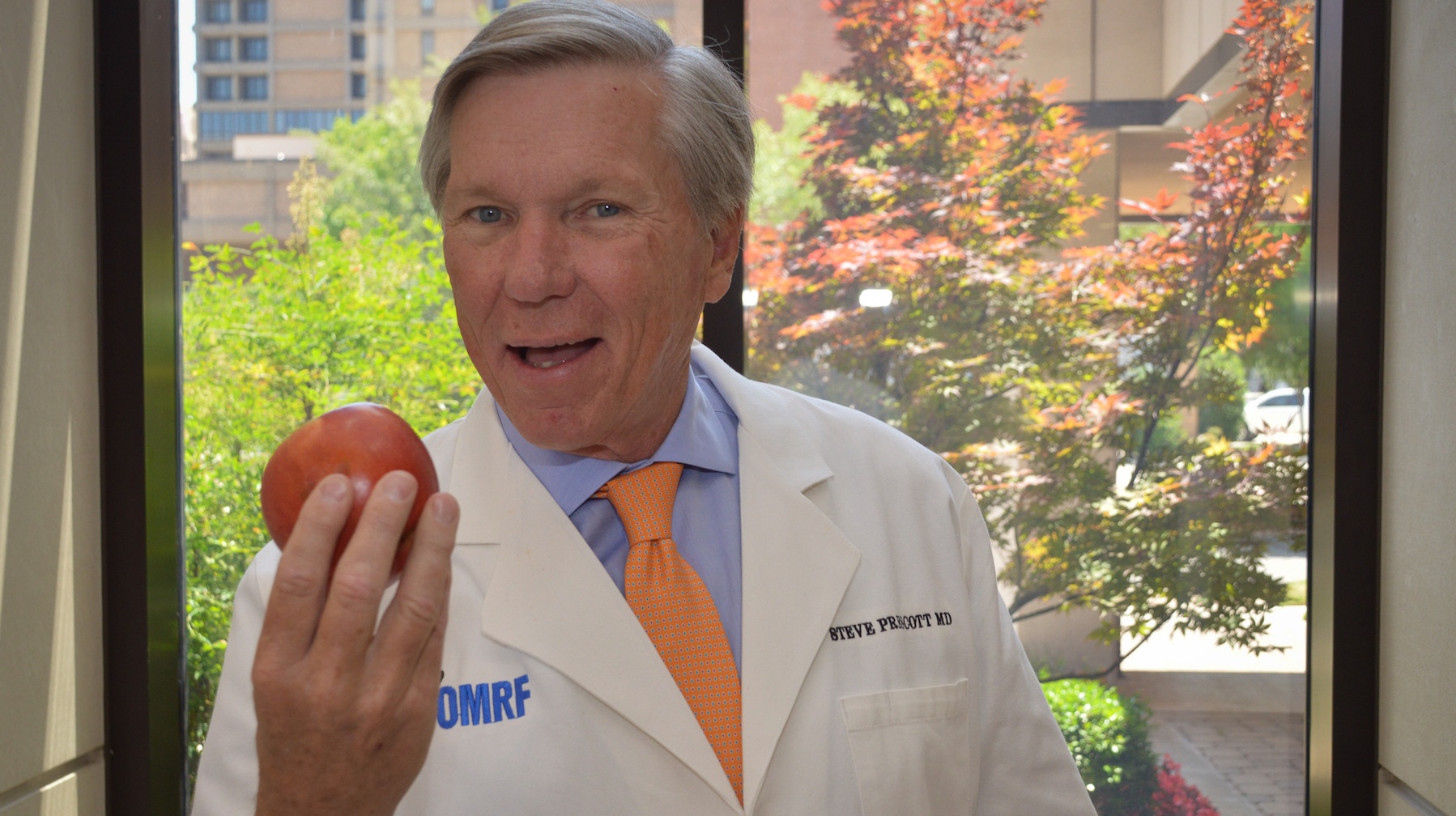For Valentine’s Day, stores stock shelves with candies and chocolates. But is a box of sugary goodies the optimal way to celebrate a holiday devoted to the heart?
Heart disease claims 800,000 Americans each year, and it’s also the leading killer in Oklahoma. While scientists continue to work toward a better understanding of cardiovascular illness, research has already found easy ways to make big gains against heart disease.
“Some small lifestyle changes can improve your long-term heart health,” said OMRF President Stephen Prescott, M.D. “And your loved ones would rather have you around than chocolate.”
- Get moving
Numerous studies, including a recent one from the Annals of Internal Medicine, have shown that sitting for long periods of time is bad for our cardiovascular health. Fortunately, the solution is as easy as putting one foot in front of the other.
“It’s important to move regularly,” said Prescott. “Get up every hour at work and walk around. Take the stairs instead of the elevator. Walk your dog when you’re home. Even if you can’t get to the gym, these little things can make a big difference.”
- Add a serving of fruits or veggies
The American Heart Association recommends eight or more servings of fruits and veggies per day. Most of us don’t come close to that number.
If you can increase your intake of fruits or veggies by one serving—usually about a half-cup—each day, that’s an important step in the right direction.
“Fruits and vegetables produce a cascade of positive effects,” said Prescott. “And the more colors there are on your plate, the better it is for your heart.”
- Subtract a sugar-packed drink
Obesity is one of the leading contributors to heart issues. One simple way to avoid excess calories is to limit your intake of sugar-loaded drinks.
“If you can substitute a glass of water for a latte, sugared soda or glass of juice once a day, you can eliminate 100-300 calories from your diet,” said Prescott.
- Go nuts
Instead of chips or cookies, choose walnuts, almonds or other nuts as a snack.
“Besides avoiding refined carbohydrates, which are a major contributor to obesity and heart disease, nuts will help your heart,” said Prescott.
In one large study, researchers found that, compared with those who never or almost never ate nuts, people who consumed one ounce of nuts five or more times per week had significantly lower levels of cardiovascular disease.
- Hit the hay
Sleep is good for just about everything. Heart health is no exception.
A 2011 European Heart Journal review involving nearly 475,000 people found that those who consistently slept less than the recommended 7-8 hours had a 48 percent increased risk of coronary heart disease and a 15 percent increased risk of stroke.
“Not only does getting an adequate amount of sleep help the heart, but I’ve found it tends to make us all more loveable,” said Prescott. “And isn’t that what Valentine’s Day is all about?”



